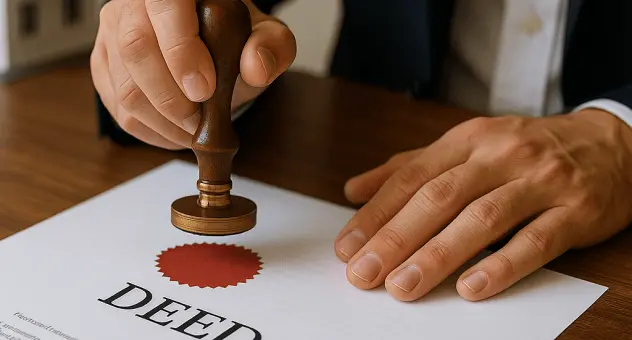What is Deed?
Deeds are legal documents that transfer ownership of real estate. They are commonly used when buying or selling property. Explore our state-specific templates for your needs.
Deeds are essential documents for transferring property ownership. Attorney-drafted templates are available for quick and easy completion.


Get everything you need for an owner-financed real estate transaction in one convenient package.
Get everything you need for an owner-financed real estate transaction in one convenient package.
Designate a beneficiary for your assets upon death, ensuring a smooth transfer process to an individual with an alternative option if needed.
Secure ownership of real estate through an agreement that outlines payment terms and responsibilities of the seller and purchaser.
Transfer property ownership quickly and easily between individuals, ensuring rights and interests are accurately conveyed.
Designate property ownership for two individuals, ensuring rights of survivorship or tenancy in common in Ohio.
Use this document to transfer property ownership between individuals, ensuring a clear title and protecting against future claims.
Transfer property ownership between spouses, ensuring clear title and rights for both parties, particularly in joint ownership setups.
Use this document to transfer property as a gift between individuals, establishing ownership without monetary exchange.
Secure property for your child while retaining lifetime rights, ensuring a smooth transfer that protects family interests.
Transfer property ownership between corporations securely with this comprehensive document.
Deeds must be signed and often notarized to be valid.
Different types of deeds serve various purposes in property transfers.
Property deeds commonly require clear identification of the parties involved.
Many deeds include legal descriptions of the property being transferred.
Deeds can be recorded with local authorities for public notice.
Begin your journey in minutes with these simple steps.
Yes, a deed is necessary to legally transfer ownership of property.
If not recorded, the transfer may not be recognized against third parties.
No, each deed must accurately reflect the specific property being transferred.
A correction deed can be used to amend errors in the original document.
A beneficiary deed allows property to transfer upon the owner’s death without probate.








